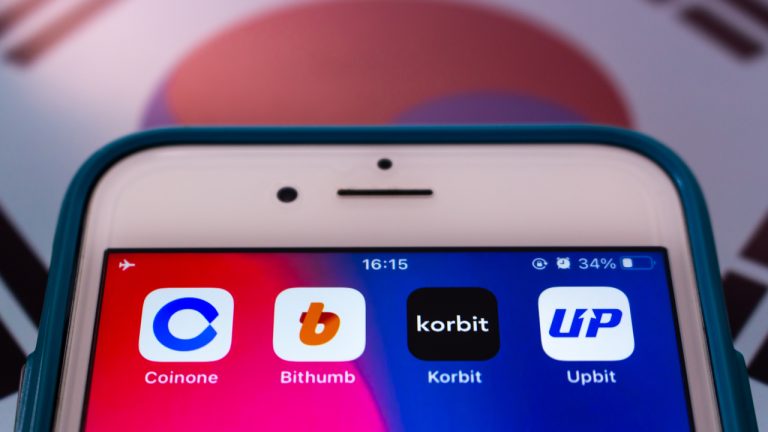South Korea’s Crypto Surge — Navigating the ‘Kimchi Premium’ and Massive Trade Volumes
Publikováno: 4.1.2024
 Recent data reveals that South Korea’s crypto trading volume has surged in recent months, with two exchanges, Upbit and Bithumb, contributing over 10% to the global trading volume as of Jan. 4, 2024. Additionally, while the global price for bitcoin hovers around $43,356 per unit, in South Korea, it commands a premium, trading at approximately […]
Recent data reveals that South Korea’s crypto trading volume has surged in recent months, with two exchanges, Upbit and Bithumb, contributing over 10% to the global trading volume as of Jan. 4, 2024. Additionally, while the global price for bitcoin hovers around $43,356 per unit, in South Korea, it commands a premium, trading at approximately […]

Recent data reveals that South Korea’s crypto trading volume has surged in recent months, with two exchanges, Upbit and Bithumb, contributing over 10% to the global trading volume as of Jan. 4, 2024. Additionally, while the global price for bitcoin hovers around $43,356 per unit, in South Korea, it commands a premium, trading at approximately $44,317 per coin.
Tracing the Strong Won-to-Crypto Volumes and Premiums in South Korea
As of 8:00 a.m. Eastern Time on Jan. 4, 2024, the global crypto economy has seen a trade volume of approximately $95.98 billion, with bitcoin (BTC) maintaining a position above the $43K mark. A significant portion of this trading activity is rooted in South Korea; at this moment, Upbit has conducted $6 billion and Bithumb $3.7 billion in 24-hour trades.
Together, these two exchanges represent 10.1% of the global crypto trade volume on Thursday. Likewise, South Korean exchanges Coinone and Korbit are experiencing increased crypto trade volumes.
Currently, South Korean platforms are trading bitcoin (BTC) at a premium; at the time of this writing, Upbit’s BTC is valued at $960 above the global average. With BTC priced globally at $43,356 per unit, it is trading at $44,317 per coin on Upbit, and similar premium rates are observed on Bithumb, Coinone, and Korbit.
Additionally, premiums are noted on SOL, ETH, and various other leading crypto assets. South Korea is historically known for its cryptocurrency premiums, commonly termed the “Kimchi Premium.”
This premium isn’t merely coincidental; it stems from a myriad of factors, primarily the high demand for BTC and other crypto assets within South Korea relative to its supply and international liquidity. Additional factors include rigorous capital controls, the regulatory landscape, and a somewhat insular market resulting from unique foreign exchange regulations.
While the South Korean government has expressed disapproval towards these elevated prices over the years, the premium trend persists. On Jan. 4, 2024, the Korean won accounts for 3.51% of the total bitcoin (BTC) trading volume and 8.06% of global SOL transactions.
The Korean won is particularly significant in the trading of crypto assets such as SEI, POWR, and BLUR, with 34.93% of SEI trades, 72.87% of POWR swaps, and 55.56% of BLUR transactions being conducted in won.
Other cryptocurrencies that are popular among South Korean traders include LSK and ETH. Normally, crypto traders would try to exploit the price difference between two markets for profit, and sometimes people are quite successful.
However, the strict capital controls and regulatory frameworks in South Korea can make such arbitrage opportunities challenging and less efficient, thereby sustaining the premium in the localized region. While the future of these premiums and the broader crypto market remains uncertain, the current trends reflect a robust engagement with digital assets in South Korea.
What do you think about the significant trade volume settled in won and the premiums on specific crypto assets on Upbit, Bithumb, Coinone, and Korbit? Share your thoughts and opinions about this subject in the comments section below.